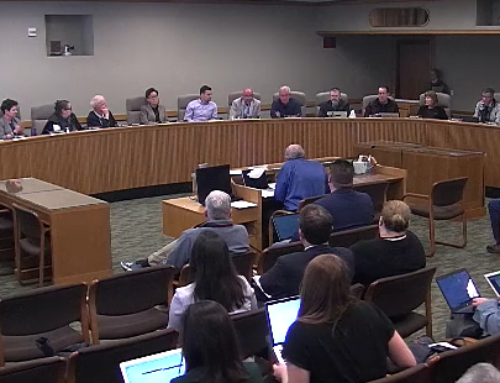Editorial: The son of Measure 97 should also die
Source: The Bulletin
Measure 97 went down in flames in November. Voters trounced the biggest tax increase in Oregon history, a proposed yearly $3 billion tax increase on the gross receipts of select businesses.
From those flames arises the son of 97, Senate Joint Resolution 41. It’s a bad tax strategy in many of the same ways. Maybe that’s why it’s an anonymous committee bill — no legislator dared put his or her name on it.
SJR 41 is a “business privilege tax,” according to the bill. Businesses are supposed to feel privileged to pay it?
The tax would apply to all forms of businesses entities, not just certain kinds of corporations as Measure 97 did. SJR 41 would apply a tax rate of up to 0.7 percent on sales.
The bill aims to target businesses with $5 million or more. Businesses with sales of less than $5 million would have to pay no more than $250 a year. Businesses with sales of less than $150,000 would pay nothing.
Sen. Mark Hass, D-Beaverton, chair of the Senate Revenue Committee, favors the tax to “modernize” the state’s tax code. Modernize is the wrong word. Gross receipts taxes used to be more common in states. They were gradually abandoned. So it’s not really a modernization; it’s a retreat. New Jersey, Kentucky, and Michigan tried out gross receipts taxes in the last 15 years and have all dropped them, because they caused too many issues. There is a legitimate motivation behind the interest in gross receipts taxes. Business taxes are generally based on taxing profits. And companies find ways to use the tax code so they do not have as much profit to tax.
How do they do that? Through tax breaks created by lawmakers.
Taxing gross receipts is one way to get around that problem. But it means that Oregon would be taxing not based on ability to pay. SJR 41 tax would tax businesses even if they aren’t making a profit. That is not right.
Gross receipts taxes also lead to taxes on taxes — what is called tax pyramiding. Before a product gets to the retail stage, it can go through several buyers and sellers. A gross receipts tax would run up the costs of some products as they were taxed at each sale.
The bill contains no exception for the food or health care industry. Do Oregonians want to pay more for food and medicine?
It’s also a hidden tax. The final consumer would not know what he or she was paying for the tax.
The son of Measure 97 should face the same fate as its father. Let SJR 41 die in the Legislature before it ever gets to voters.





